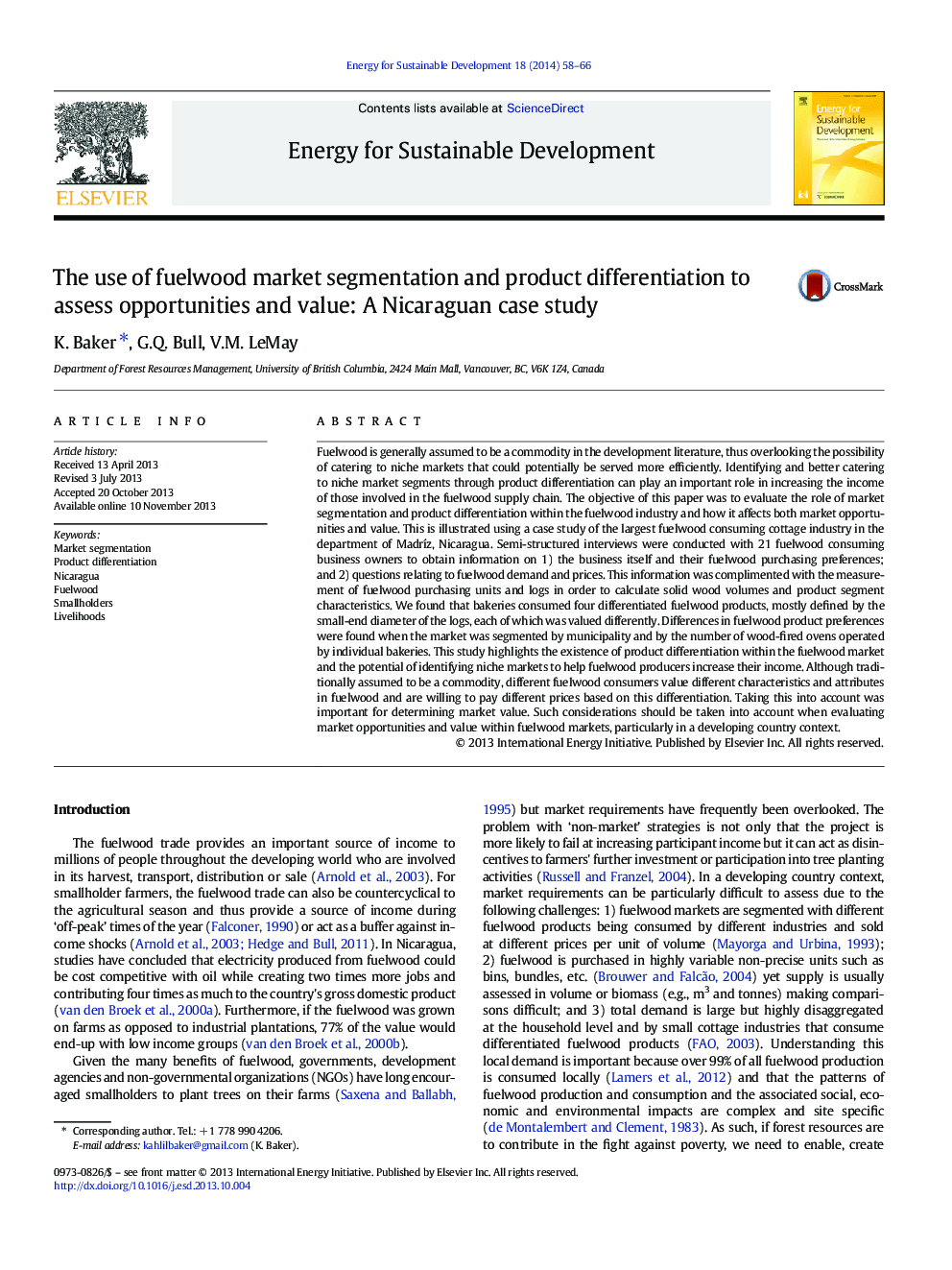| Article ID | Journal | Published Year | Pages | File Type |
|---|---|---|---|---|
| 7454058 | Energy for Sustainable Development | 2014 | 9 Pages |
Abstract
Fuelwood is generally assumed to be a commodity in the development literature, thus overlooking the possibility of catering to niche markets that could potentially be served more efficiently. Identifying and better catering to niche market segments through product differentiation can play an important role in increasing the income of those involved in the fuelwood supply chain. The objective of this paper was to evaluate the role of market segmentation and product differentiation within the fuelwood industry and how it affects both market opportunities and value. This is illustrated using a case study of the largest fuelwood consuming cottage industry in the department of MadrÃz, Nicaragua. Semi-structured interviews were conducted with 21 fuelwood consuming business owners to obtain information on 1) the business itself and their fuelwood purchasing preferences; and 2) questions relating to fuelwood demand and prices. This information was complimented with the measurement of fuelwood purchasing units and logs in order to calculate solid wood volumes and product segment characteristics. We found that bakeries consumed four differentiated fuelwood products, mostly defined by the small-end diameter of the logs, each of which was valued differently. Differences in fuelwood product preferences were found when the market was segmented by municipality and by the number of wood-fired ovens operated by individual bakeries. This study highlights the existence of product differentiation within the fuelwood market and the potential of identifying niche markets to help fuelwood producers increase their income. Although traditionally assumed to be a commodity, different fuelwood consumers value different characteristics and attributes in fuelwood and are willing to pay different prices based on this differentiation. Taking this into account was important for determining market value. Such considerations should be taken into account when evaluating market opportunities and value within fuelwood markets, particularly in a developing country context.
Related Topics
Physical Sciences and Engineering
Energy
Energy (General)
Authors
K. Baker, G.Q. Bull, V.M. LeMay,
